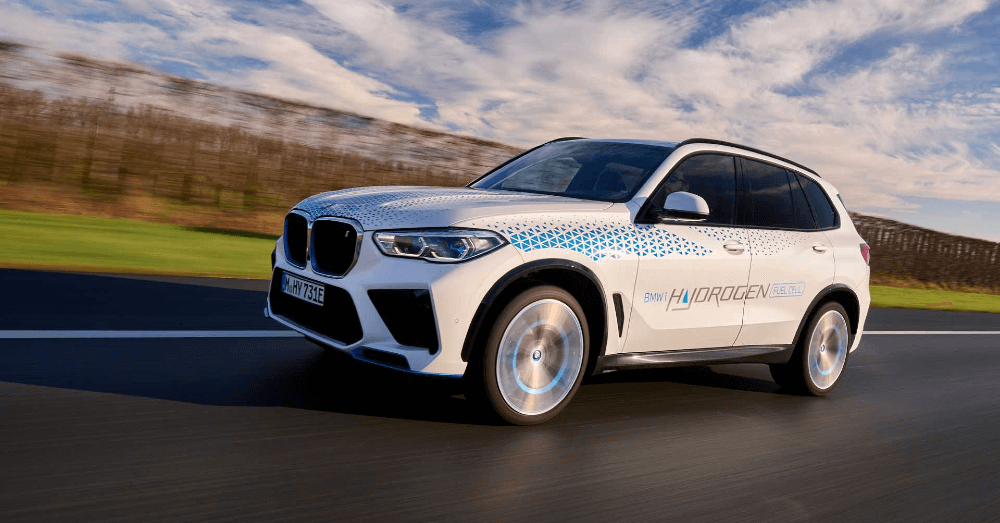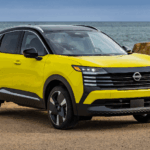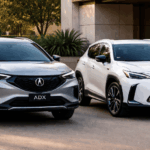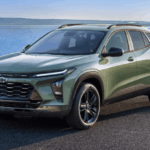One of the BMW X5 powertrains will be a hydrogen fuel cell in 2028, giving the popular SUV a new way to give you power and performance for the future.
BMW officially confirmed the 2028 X5 will offer five different powertrains, including the iX5 Hydrogen – the company’s first-ever series production hydrogen car alongside electric, plug-in hybrid, petrol, and diesel options. After years of testing fuel cell technology with Toyota, BMW says hydrogen is the “missing piece for completing the electric mobility puzzle,” where batteries aren’t optimal. But with hydrogen stations about as common as unicorns, can BMW really make this work? Here’s their plan to build the infrastructure and why they think you’ll want to fill up with hydrogen.
Five powertrain choices in some markets
When the new BMW X5 arrives for 2028, it will be offered as a fuel cell vehicle, which increases the number of powertrains to five. That’s a lot of choices for one SUV, but the X5 is not an ordinary model, it’s one of the most popular SUVs on the market. The five powertrain options will be diesel, EV, gas, hydrogen, and plug-in hybrid. In the United States, the diesel model isn’t likely to make an appearance, and the hydrogen might not be made for this market either, but it will be offered in other areas, increasing the number of alternative fuel vehicles available.
Design, development and partnership
This new hydrogen-powered X5 will be another product of the BMW and Toyota collaboration that brought us the new Supra and Z4 sports cars. The BMW Neue Klasse design language will be part of what you find in the BMW iX5 Hydrogen when it becomes a production car. The partnership with Toyota makes sense; the Japanese brand has been building hydrogen cars for several years, but it brings another question to mind. Where are the hydrogen refueling stations that will support this new hydrogen-powered BMW X5? As you would expect, along with the announcement of this specialized version of the X5 came the announcement that BMW will invest in hydrogen infrastructure development and growth.
Hydrogen could be the future
As BMW works toward fuel cell technology commercialization across several countries, they are keenly aware of the snail’s pace of the development of this technology. Still, the BMW X5 hydrogen fuel cell SUV will arrive in 2028, and by then, the company intends to have several hydrogen fueling locations set up in Germany and France. BMW plans to make this technology and the fuel more economically viable in other markets by supporting various hydrogen ecosystem projects.
An experiment comes to fruition
This won’t be the first time BMW has experimented with a hydrogen drive system, but it will be the brand’s first series-production hydrogen vehicle. The iX5 has been tested, and the results have been positive enough for BMW to move forward. The technology is based on a third-generation fuel-cell system that BMW and Toyota have been jointly developing for the past eleven years. Some components are developed at plants in Germany, and BMW says the system should offer plenty of range and power while reducing energy consumption.
Why hydrogen?
Many automakers are working toward the next alternative fuel vehicles and this has been the case for many years. In fact, hydrogen has been one of the most successful alternatives to gasoline, next to electricity, making it a viable choice. Using hydrogen, which is turned into electricity and then combined with oxygen, the vehicle expels only water vapor into the air, drivers can refuel quickly, drive for a reasonable number of miles, and enjoy a clean-burning vehicle. Of course, there are still some hurdles to cross, not the least of which is the lack of an infrastructure for hydrogen refueling.
The time is right
Despite the American automotive market’s heavy reliance on gasoline and diesel, many markets in the world have turned to alternative fuels, including electricity. Some regions, including Europe, have stricter emissions and fuel mileage standards being put in place over the next several years, making the time right for automakers to produce fewer gas and diesel-powered vehicles and more models using alternative fuels. Of the five X5 models that will be available in 2028, three are alternative fuel models.
Will the BMW X5 hydrogen fuel cell SUV make it to the United States in 2028? Probably not, but as BMW invests in hydrogen infrastructure growth, it could arrive sometime in the future after that. Would you consider driving a hydrogen-powered SUV?







Leave a Reply